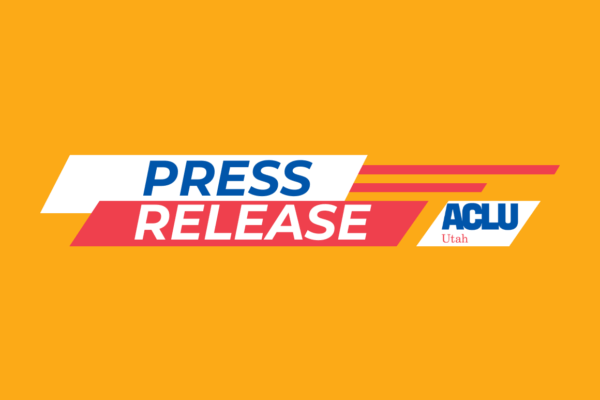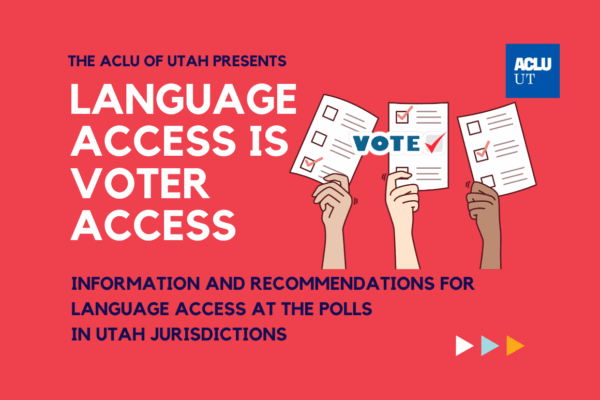Indigenous Justice
The ACLU is committed to defending tribal sovereignty and the rights of Indigenous peoples to be free from discrimination and governmental abuse of power.

The ACLU of Utah works to uplift Indigenous people, communities, and tribes through community-directed and integrated legal and advocacy work. We aim to support tribal communities -- and follow their lead -- as they work to uphold their sovereignty, dignity, and autonomy. We work to dismantle colonial systems of oppression that are found in all of our institutions, including schools, prisons and access to the ballot.
What is Indigenous justice?
Indigenous justice is the freedom and ability of Indigenous people to exercise their rights and sovereignty over themselves, their people, and their land. This includes the freedom to engage in traditional ways of governing, being, healing, and knowing while also learning and celebrating culture, language, tradition, and heritage by ceremonies and other practices.
What's At Stake
Indigenous peoples and their governments have suffered discrimination and injustice at the hands of the Utah and the United States since their foundings, yet contemporary civil rights discussions all too often ignore their rights. Indigenous communities are among the most impoverished in the nation, and the stigma of past discrimination regularly rears its head in the spheres of public health, education, and juvenile justice.
The ACLU has filed important class-action lawsuits challenging discrimination against Indigenous people in education, voting, and the child welfare system. In 1978, Congress enacted the Indian Child Welfare Act (ICWA), a federal law designed to protect Indigenous families from “abusive child welfare practices that resulted in the separation of large numbers of Indian children from their families and tribes through adoption or foster care placement.” In 2013 the ACLU used ICWA to challenge pervasive discrimination and the lack of due process afforded to Indigenous families in emergency child custody proceedings.
In 2022, the ACLU, along with 12 ACLU state affiliates (including the ACLU of Utah) and represented by Cooley LLP, filed an amicus brief with the Supreme Court urging the court to uphold the constitutionality of ICWA, which was at risk of being gutted by the court. In 2023, the Supreme Court issued a decision in Haaland v. Brackeen, delivering a landmark victory for tribal sovereignty, Native children, Native families, and the future of Native people. The ACLU is now urging states to take action and introduce or strengthen existing state-level ICWA protections. We are committed to continuing to defend tribal sovereignty and the rights of Indigenous peoples to be free from discrimination and governmental abuse of power.
The Latest

ACLU of Utah on Diversity, Equity, and Inclusion (DEI) Initiatives in Educational institutions

Language Access is Voter Access

EL ACCESO AL IDIOMA ES ACCESO PARA LOS VOTANTES
Cases, Campaigns & Legislation
Navajo Nation Human Rights Commission v. San Juan County et al (2016)
Stay Informed
Sign up to be the first to hear about how to take action.
By completing this form, I agree to receive occasional emails per the terms of the ACLU’s privacy statement.
By completing this form, I agree to receive occasional emails per the terms of the ACLU’s privacy statement.

